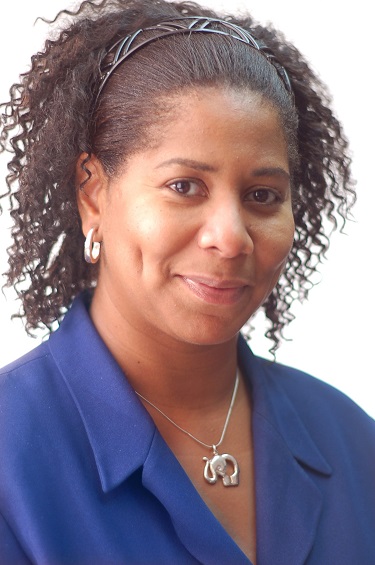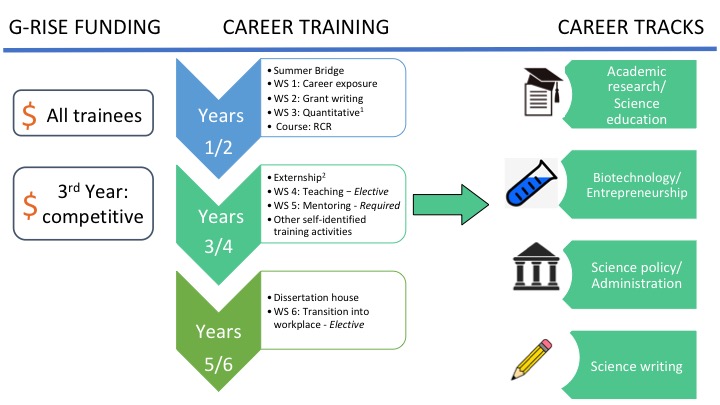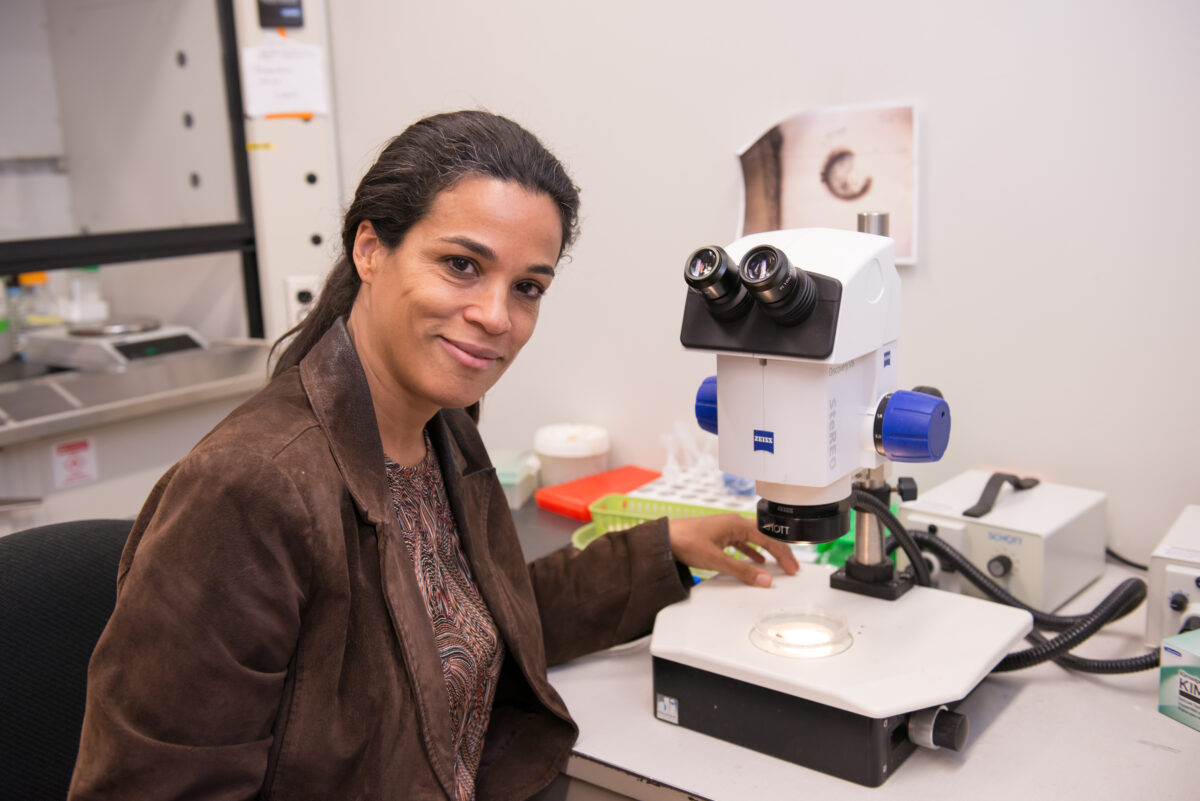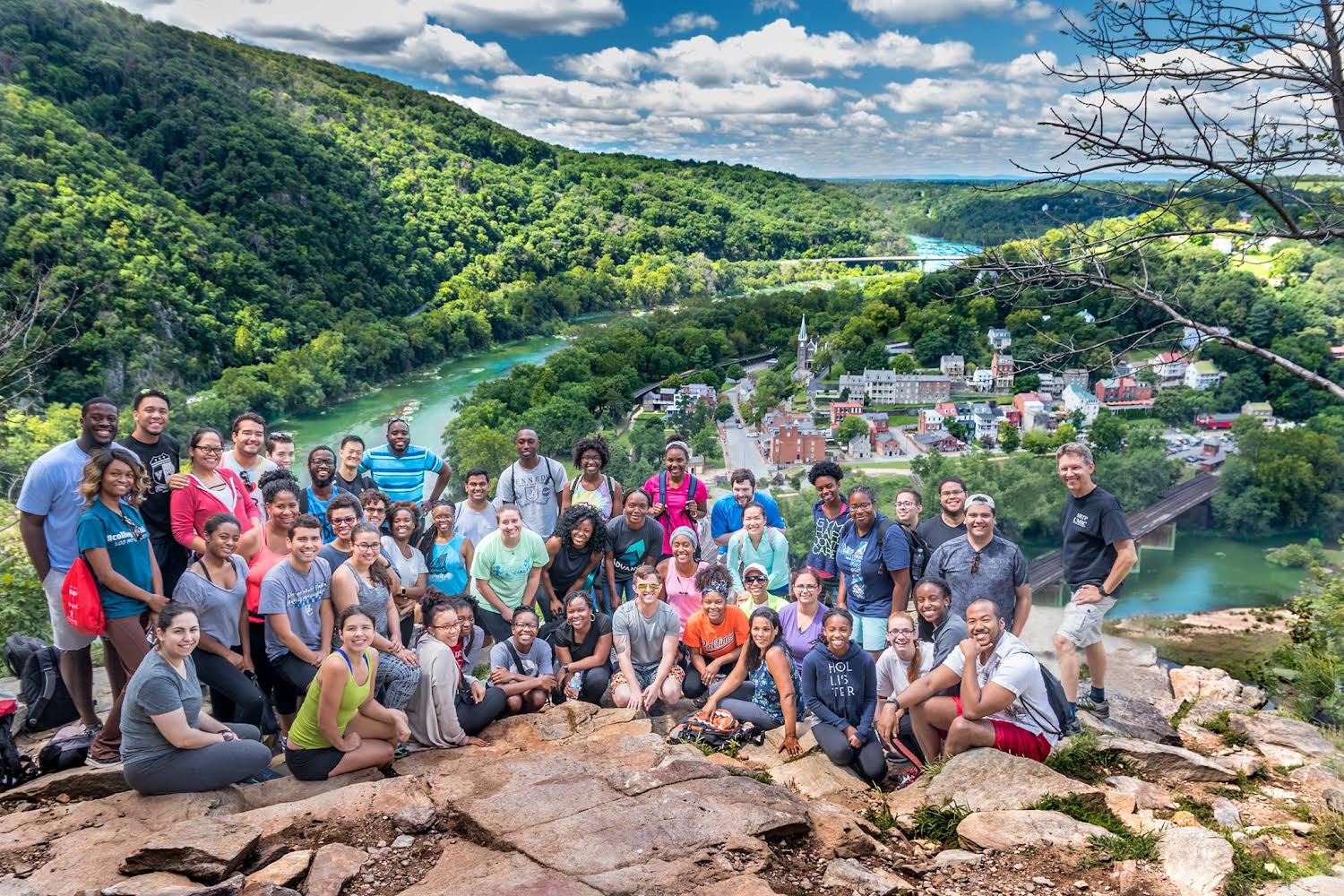UMBC’s College of Natural and Mathematical Sciences will receive $5.6 million over five years from the National Institutes of Health to fund the Graduate Research Training Initiative for Student Enhancement (G-RISE). The program will support graduate students from underrepresented groups in STEM with up to three years of funding and an array of training opportunities. The goal is to help participants select and prepare for a range of career paths, in academia, industry, government, entrepreneurship, or beyond.
G-RISE will replace UMBC’s Initiative for Maximizing Student Development (IMSD) Meyerhoff Graduate Fellows program, which the NIH also funded. IMSD, under the direction of Michael Summers, Robert E. Meyerhoff Chair for Excellence in Research and Mentoring and Distinguished University Professor, has proven highly successful at supporting students in completing Ph.D. degrees in STEM.
Building on success
Since its launch in 1996, the IMSD program steadily gained momentum, enrolling and graduating a growing number of students. Over 150 UMBC participants have already earned their Ph.D. The program joined forces with the University of Maryland, Baltimore in 2007, and 64 participating UMB students have also earned a Ph.D. since then.
An impressive 98 percent of the graduates are working in STEM or continuing to pursue training opportunities. Students in the program have also authored more than 250 research papers, and they are listed as first authors on 60 percent of the papers from UMBC.
The IMSD program offered 18 fellowships per year across UMBC and UMB, but G-RISE, which UMBC will operate independently, ramps up NIH’s support. In the first year, nine UMBC students will receive funding, and in each of the next four years, G-RISE will support 25 UMBC students. G-RISE will also offer up to three years of funding per student.
“We’re really excited that the NIH has the confidence that we can do the work,” says Justine Johnson, co-lead on the new grant and associate director of the IMSD Meyerhoff Graduate Fellows Program.

Choose your own adventure
For example, students will have access to workshops focused on exposure to career paths, quantitative analysis, teaching, mentoring, and the transition to the workplace. They’ll also take courses on the responsible conduct of research and methods to increase the reproducibility of results, both important skills for emerging researchers.
Many of the elements are program requirements for the students, but they will also have some flexibility depending on their chosen career paths and research field. “It’s a bit of an adventure,” Brewster says. “We will work with students to identify what best suits their skills and aspirations.”

Scaffolded support
The program emphasizes offering structured support to students interested in a wide range of career outcomes. To that end, students in their first year will participate in “a workshop to consider broadly a range of careers and identify a few that they’d like to explore in more detail,” Brewster says, “and then in years two and three we’ll encourage them to pick a career track.” Tracks include academic research and science education, biotechnology and entrepreneurship, science policy and administration, and science communication.
Once a student chooses a track, the program becomes even more personalized. “We will have more targeted meetings with them to explore in more detail ways they could make themselves more competitive for those career options,” Brewster says.
Each participant will also work with their UMBC research mentor to develop a proposal in their third year to support their career goals. For example, proposals might include pursuing an internship in industry or policy, or gaining research experience in a collaborator’s laboratory. The program also has resources to support students attending external professional development events and accessing training that fits their goals.
Committed faculty
A student’s faculty mentor also plays a major role in their development and ability to progress along their chosen career path. Today, more often than not, that path is not toward academia. Faculty who want to support students in pursuing a broad range of career goals can sometimes feel ill-equipped to do so, given their own backgrounds in academia.
To address this important challenge, G-RISE will also organize discussion sessions for faculty mentors to share strategies with each other for supporting students whose career goals differ from their own. Their conversations will also address best practices for mentoring students from a wide range of backgrounds.
“We all, faculty and students, will need to be willing to expand our vision of the purpose of graduate science education,” Brewster says. Then, “We’ll need to support the students in ways that help them achieve that full purpose. In some respects, we view G-RISE as a space where faculty and students can interface on these issues.”
While Brewster, Johnson, and the other co-leads want to facilitate exploration of all STEM careers, they also intend to encourage those interested to pursue academia. “We’re concerned,” Brewster says, “that with dwindling numbers of graduates entering the professoriate, there is a missed opportunity for the nation to benefit from the influx of ideas and perspectives that come with diversity.”

Taking the lead
Overall, Brewster and Johnson are excited to lead this new enterprise. They’re looking forward to leveraging the experience of its successful predecessor to support and widen training opportunities for historically underrepresented students in STEM fields. Both have been closely involved with the IMSD Meyerhoff Graduate Fellows Program, but they are taking the lead for the first time.
“Rachel is at the helm, and I’m right there with her,” Johnson says. These issues are so important to all of the co-leads, that even as Johnson acknowledges they’re heading into uncharted waters, she says, “We’re going to work so hard to knock this one out of the park.”
Tags: CNMS, COEIT, diversityandinclusion, GraduateSchool

